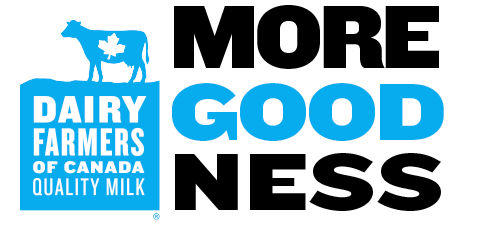It’s all about maintaining
Protein is vital for building and maintaining all our body tissue from organs to muscles to bones. Dietary protein, found in meat, fish, poultry, milk products, eggs, legumes and nuts, is central to health at every age. In addition, research reveals that consuming enough at each meal may be especially critical in helping maintain healthy muscle mass and preventing the muscle loss that comes as we get into our forties and beyond.1
Goal: better balance
Our body requires a balanced amount of protein throughout the day to carry out essential functions and fully take advantage of the protein we consume. Getting too little protein at breakfast and lunch forces the body to take what it needs from muscle mass. However, since the body can only use so much at a time, eating large amounts of protein at dinner simply creates an excess that can’t all be used to build and maintain muscles and other body tissues.
Healthy weight management
Eating enough protein helps you feel more satisfied between meals, an especially interesting benefit for healthy weight management. Having sufficient protein at each meal also helps limit the muscle loss that can accompany weight loss. And, maintaining muscle mass during weight loss helps prevent future weight gain.
Getting what you need
Aim for at least 20-30 g of protein at every meal, including breakfast and lunch. How much is 20 to 30 grams of protein? Please refer to the table below to have an idea of the average protein content of some common foods.2
| Food | Protein content (g) |
| 250 mL (1 cup) milk | 9 |
| 175 g (¾ cup) plain yogurt | 9 |
| 175 g (¾ cup) plain Greek yogurt | 17 |
| 30 g (1 oz) piece of cheese, cheddar or mozzarella | 7 |
| 125 mL (1/2 cup) cooked lentils | 11 |
| 125 mL (1/2 cup) cooked chickpeas | 6 |
| 2 large eggs | 12 |
| 30 g (60 mL) almonds | 7 |
| 30 g (30 mL) pumpkin seeds | 9 |
| 15 g (15 mL) natural peanut butter | 4 |
| 100 g (3 oz) cooked chicken breast | 31 |
| 100 g (3 oz) cooked lean ground beef | 26 |
| 100 g (3 oz) cooked salmon | 22 |
Sources
1. Paddon-Jones D and Rasmussen BB. Dietary protein recommendations and the prevention of sarcopenia. Curr Opin Clin Nutr Metab Care 2009;12(1):86-90.
2. Health Canada. 2015. Canadian Nutrient File (CNF) - Search by food. https://aliments-nutrition.canada.ca/cnf-fce/switchlocale.do?lang=en&url=t.search.recherche. Accessed August 25, 2021.









